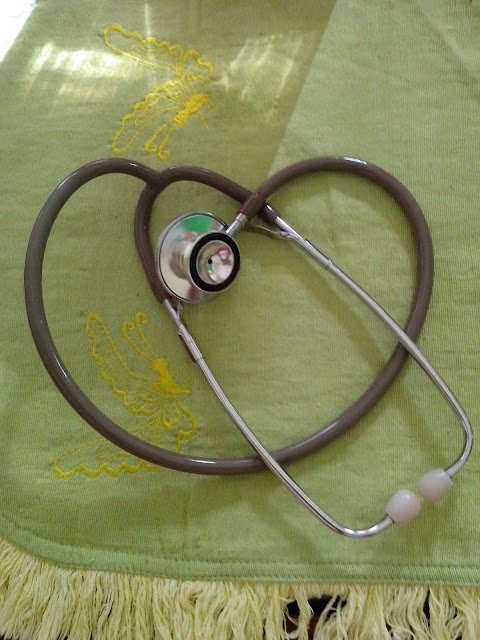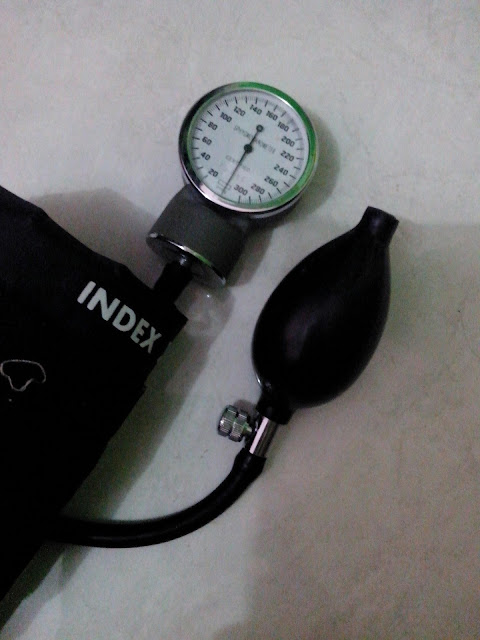A stethoscope is a medical device for listening to sounds inside the body. The initial stethoscope was invented in the early 19th century by French physician Ren� Laennec, but was actually trying to achieve a rather different end: doctor-patient distance....
Tuesday, September 8, 2015
HOW CAN I RECOGNIZE ADVERSE REACTIONS IN ELDERLY PATIENT?
RECOGNIZING COMMON ADVERSE REACTIONS IN ELDERLY PATIENT
Common signs and symptoms of adverse reactions to medications include hives,
impotence, incontinence, stomach upset, and rashes. Elderly patients are
especially susceptible and may experience serious adverse reactions, such as
orthostatic hypotension, dehydration, altered mental status, anorexia, blood
disorders, and tardive dyskinesia.
In order to recognize and to prevent ADRs (including drug interactions),
good communication is crucial, and prescribers should develop an
effective therapeutic partnership with the patient and with fellow
health professionals.
Some adverse reactions, such as anxiety, confusion, and
forgetfulness, may be dismissed as typical elderly behavior rather than
recognized as drug effects. Adverse drug reactions should be reported to a
pharmacist, physician, or nurse practitioner.
Orthostatic hypotension
Marked by light-headedness or faintness and unsteady footing,
orthostatic hypotension occurs as a common adverse effect of antidepressant,
antihypertensive, antipsychotic, and sedative medications.
To prevent accidents such as falls, warn the patient not to sit up
or get out of bed too rapidly. Instruct him to call for assistance in walking if
he feels dizzy or faint.
Dehydration
If the patient is taking diuretics such as hydrochlorothiazide, be
alert for dehydration and electrolyte imbalances. Monitor blood levels and
provide potassium supplements as ordered.
Oral dryness results from many medications. If anticholinergic
medications cause dryness, suggest sucking on sugarless candy or using
over-the-counter saliva substitutes for relief.
Altered mental status
Agitation or confusion may follow ingestion of alcohol or
anticholinergic, antidiuretic, antihypertensive, antipsychotic, antianxiety, and
antidepressant medications. Paradoxically, depression is a common adverse effect
of antidepressant medications.
Anorexia
This is a warning sign of toxicity—especially from digitalis
glycosides, bronchodilators, and antihistamines. That's why the physician
usually prescribes a very low initial dose.
Blood disorders
If the patient takes an anticoagulant such as warfarin, watch for
signs of easy bruising or bleeding (such as excessive bleeding after
toothbrushing). Easy bruising or bleeding may be a sign of other problems, such
as blood dyscrasias and thrombocytopenia. Other drugs that may cause these
reactions include several antineoplastic agents (such as methotrexate),
antibiotics (such as nitrofurantoin), and anticonvulsants (such as valproic acid
and phenytoin). A patient who bruises easily should report this sign to his
physician immediately.
Tardive dyskinesia
Characterized by abnormal tongue movements, lip pursing, grimacing,
blinking, and gyrating motions of the face and extremities, tardive dyskinesia
may be triggered by psychotropic drugs, such as haloperidol and chlorpromazine.
Subscribe to:
Comments (Atom)
Powered by Blogger.



